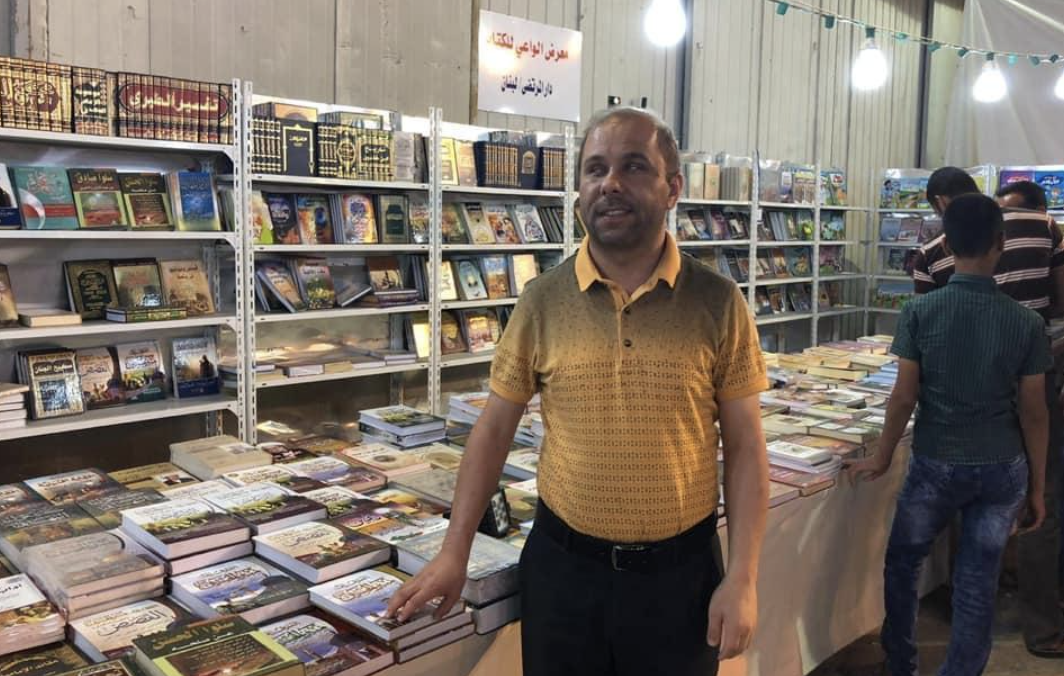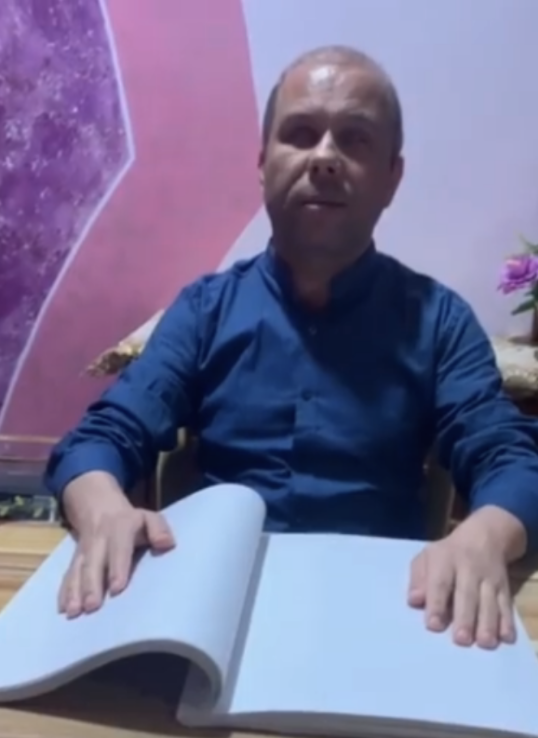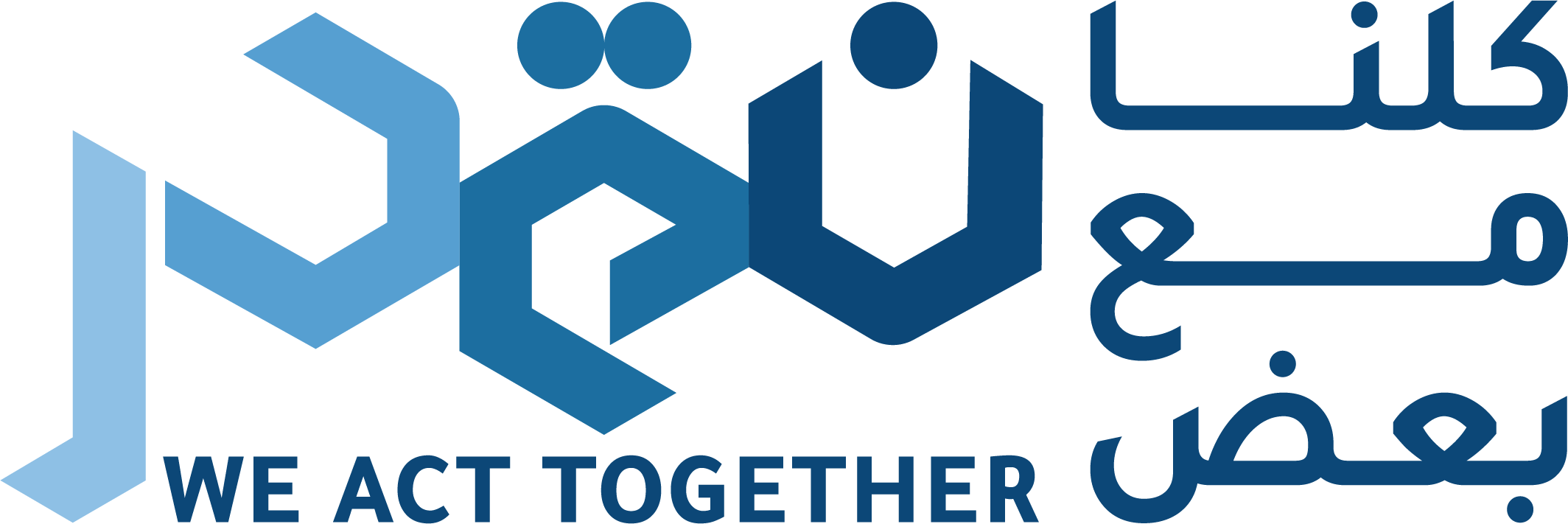Issmat Abdul-Hafidh Al-Basri – Iraq
| GCHR
Issmat Abdul-Hafidh Al-Basri

“Braille Readers are Leaders”. A motto launched by the International Federation of the Blind as it took it upon itself to work for promoting the use of Braille and the education of the blind.
Anyone observing the scope of the problems facing the blind in many Arab countries would realize that the rights which the blind demand in foreign countries are pipe dreams for them in our region. Perhaps these dreams never even occurred to them because they are aware that they never were on top of the list of government priorities, and have been denied social services and basic natural rights, with very few exceptions. The challenges facing the blind include the difficulty of independent mobility; the lack of adequately modified public buildings and facilities to accommodate the blind; the absence of school curricula that teach the Braille system and promote the literacy of blind persons who are incapable of reading printed paper books.
He Lost Eyesight, But Lit a Beacon for Many
Issmat Abdul-Hafidh was born in 1984. His childhood was semi normal within a supportive family. He used to be able to see a little light, and thought that this is how things are supposed to be, until he completely lost his sight in June 1997 after finishing primary education at a private school for the blind.
During the 1990s and the period of the international embargo imposed on Iraq, the conditions in the country were extremely harsh on Issmat. He completed elementary education at a school for the blind from 1991 to 1997. Since that school was only offering primary education, he had to change to another school for his secondary education, where he studied with sighted students for the first time.
“I used to notice that the blind were kept to themselves and limited their communication with fellow blind colleagues.”
Issmat finished with high school by memorizing the lessons through listening to cassette records over and over until he memorized the material. Despite the daunting and challenging process of a blind person having to study from regular books intended for sighted people; Issmat finished high school and enrolled at Al-Basra University at the Faculty of Arts, and graduated in 2009. He then began the search for a job in an environment where employment opportunities for the blind are very limited and almost non-existent.
He was appointed as a school teacher. A large number of pupils was placed in the classroom, averaging over 86 students. Issmat was keen on applying good management skills based on respect. Although he was assigned to a regular school for sighted pupils, he volunteered at the school for the blind where he had studied, and offered to the blind pupils there all means of acquiring knowledge that were available to him.
He embarked on his career in education and refused to give in to the loss of eyesight, and tapped into his insight to carry on with his life. He organized a series of lectures for at least 70 or 80 students each time at the university premises, and called for changing the stereotypes of the blind in society, and the appropriate etiquette in interacting with them.
“I found that the society needed to get to know this segment of people, and to view them as a capable and empowered group which possesses clear vision.”
“I faced rejection at each door I attempted to open. I still remember an incident when an employee at the Ministry of Education told her colleague that this poor man is naïve and thinks that he can work as a teacher. I responded by telling her that it is unbelievable that an employee at her age and in the position she held was unaware that Taha Hussein was appointed a minister back in 1950 in the Arab Republic of Egypt, and that he was never impacted by those who belittled his capabilities, and was able to attain unprecedented achievements.”
Issmat felt at times that he was destined for rejection, but he refused to just accept the legislations that failed to take into account the needs of persons with disabilities. He organized a conference together with his blind colleagues, and invited a representative of the Ministry of Education, who said in his keynote speech, “I represent the entity with the shortcomings”.
“I invited my male and female colleagues who had spent years in the teaching profession to a conference aimed at lobbying for being accepted by the Ministry of Education. We were trying to create an opportunity for reaffirming our presence in the face of discrimination. We fought for diversity and for the visually impaired persons’ rights to be acknowledged, and their rights to communicate, teach, work and receive fair wages.”
Issmat and his colleagues continued their advocacy campaigns until the Blind Care Act no. 38 was enacted in 2013. However, putting it into effect was delayed until 2019, when 20 blind persons were employed by the Ministry of Education in Al-Basra, in accordance with the said law.
A Present That Changed the Course of His Life and Brought Light to Al-Basra
In 2019, Issmat was presented with a personal printer worth USD 4,500, from Iraqi architect Ms. Faten Issa Al-Sarraf. This gift changed the course of his life, as he used it to print school textbooks in Braille.
“I used to type books as word documents, then transcript the text into the Braille System, which is the method used by blind and visually impaired persons to read. Every book took me about 15 days. I would feel each character in different directions, work on the keyboard through the screen reading program, then I would read the book by letters, and listen to it again. Each book encompassed 100 to 150 pages, which translates to between 200 to 300 pages using the Braille System”.
Issmat was determined to make books written using the Braille System available to the teachers and to blind students as an alternative to the ordinary textbooks intended for sighted people. Issmat succeeded in transcribing the entire syllabus of the primary stage into the Braille System, and pupils became able to read them normally.
Issmat strongly believes that accessibility to the Braille System is a fundamental human right. He recalls how he would always bring along a copy of Al-Nahar newspaper issued in Beirut, which was produced using the Braille System; as an example for demonstration at the lectures he gave in schools and colleges in Al-Basra.
“I continued to do that from 2011 to 2019 because this newspaper was the only demonstration model I had to talk to pupils and students about Braille. I used to worry about this copy being lost or damaged, because if that were to happen, I would not have been in a position to talk to people without having any publication in the Braille System in my possession.”
Over a two-year period (2019-2020), Issmat printed 300 books using the Braille System. He has now begun to prepare syllabus books for the secondary stage, for students attending regular schools. He also plans on expanding his work to various cultural and literary books, in addition to stories for children.
“Deprived of Eyesight, But Lit up the School of the Blind.”
Issmat says that the Iraqi Ministry of Education has gravely neglected the needs of the blind. Not a single book was printed using the Braille System, which is unprecedented even in the poorest countries of the world. Iraq is almost the only country where there is not a governmental or private institution for publishing books using Braille.
In addition to his profession as a teacher, Issmat fulfilled his dream of working in media. He began with reading the news using Braille and posted audio and video clips on his Facebook account, which enabled him to find a job as a host of a radio program in Al-Basra. Issmat makes audio reports which he prepares and records for Radio Free Iraq and BBC Radio London, including reports on the life of renowned Iraqi poet Badr Shakir Al-Sayyab. “I feel unspeakably happy when I state my name at the end of each report. The blind have a wealth of creativity and talent, but the society often doesn’t believe in their abilities. The society must give them a chance”.
“Blind students and their parents were ecstatic after the students were enabled to obtain knowledge in a way that was adapted to their needs. I told them that this was my duty. No one had me undertake this, but I found myself volunteering at the School of the Blind. I have found happiness through humanitarian work and the joy of giving”.
Due to the publicity he had for speaking about his experience when he went to school and his Facebook posts, the School of the Blind received numerous donations, air conditioners and TV sets from many people, including the lady who had presented him with the printer.

Issmat hopes that the government will perform its duties and establish publishing houses for Braille books in Iraq. He also hopes that the society will recognize that the blind have come a long way, and his message to all the blind is to learn and educate themselves so that they are capable to face the challenges of life.
Anyone who hears the story of Issmat Al-Basri would realize that he had a humanitarian mission, which highlights his role in advancing his community and defending the right of all to a decent life. His life experience deserves to be a milestone in giving hope.
